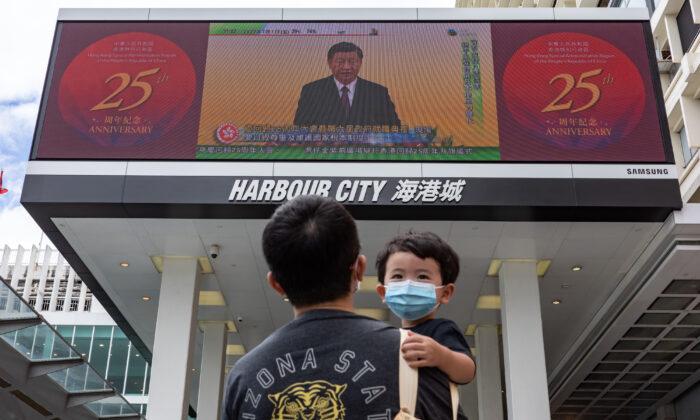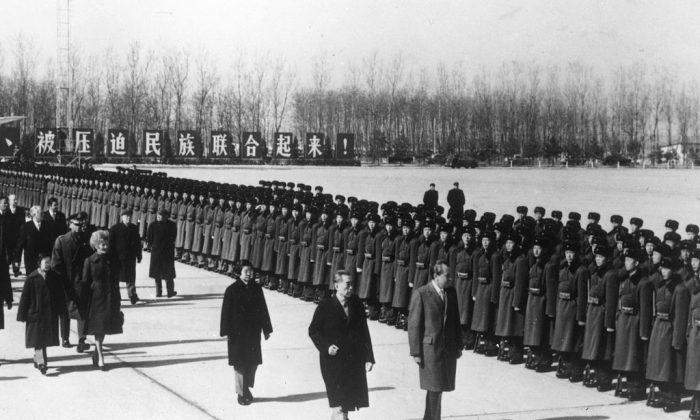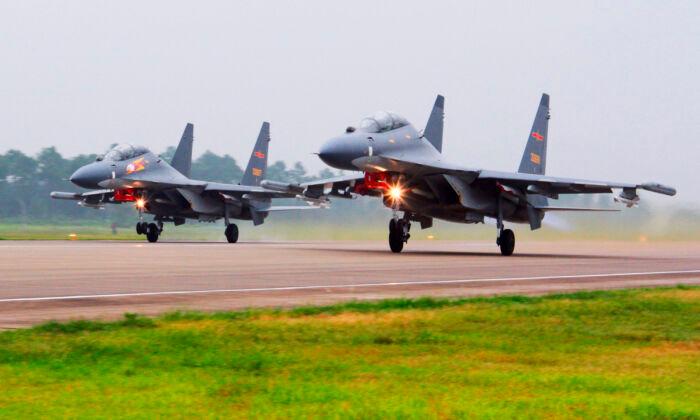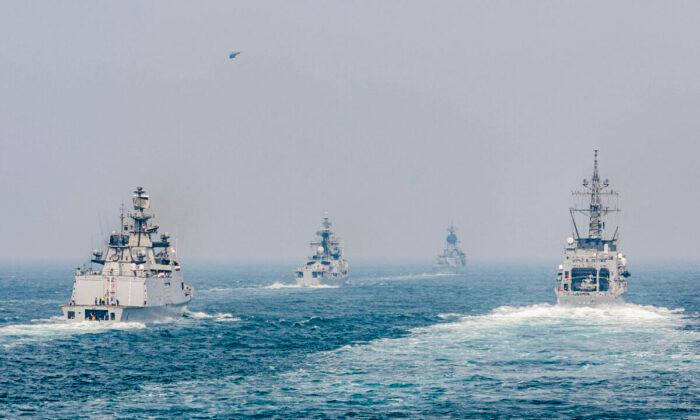As Hong Kong, or perhaps more accurately its government, prepared to celebrate a quarter century as a special autonomous region (SAR) of China and the inauguration of a new chief executive, Beijing’s hand-picked candidate John Lee, the atmosphere was more one of manufactured gaiety than genuine joy.
District councils and sundry “patriotic” organizations put up gaudy decorations. At the same time, the media speculated about whether Chinese leader Xi Jinping would or would not show up, reminding this observer of the line from the nursery rhyme “the stockings were hung by the chimney with care in hope that Saint Nicholas would soon be there.”
Hong Kong’s unique status and advantages must be maintained while upholding the central authorities’ jurisdiction and the administration of patriots. Xi quickly returned home after skipping the traditional flag-raising ceremony due to heavy rains.
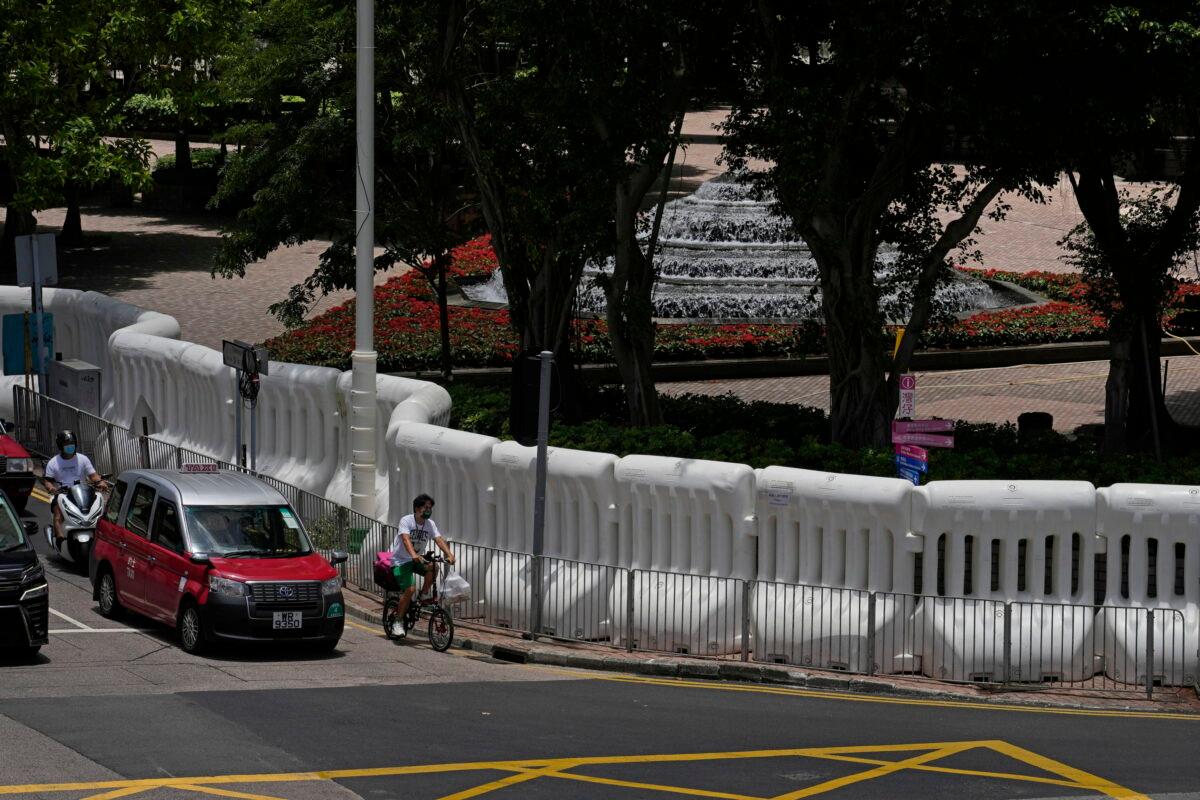
Although delicately admitting that the city had experienced “some turbulence” in the past, it had, said Chan, quickly returned from chaos to stability with the passage of the National Security Law (NSL). To ensure future prosperity, he advised, Hong Kong must further integrate itself into China’s overall national development.
In fact, the 2019 demonstrations Chan alluded to were but the culmination of escalating levels of popular protest ever since Beijing, soon after assuming jurisdiction, began to erode the pledges it had given Britain in the handover agreement—in 1999 when China’s rubber-stamp legislature, the National People’s Congress, overruled the Hong Kong Court of Final Appeals judgment on the right of abode; in 2003 over a proposed national security law; in the 2014 “Umbrella Movement” when Beijing reneged on its promise for direct elections; and finally in the 2019 uprising when up to 2 million people took to the streets to oppose a bill that would allow the extradition of Hong Kong residents to the mainland to be tried under its harsh and opaque legal system.
Their efforts failed, resulting in the 2020 NSL that punished advocates of secession, subversion, terrorist activities, and collusion with a foreign country or with external elements to endanger national security. Conveniently ambiguous, the law in effect allowed for prosecution for almost anything the authorities deemed to endanger national security, including people whose only offense was that they had contributed to a fund to defray the legal expenses of those already arrested before the law went into effect.
As banners floated aloft, the atmosphere at ground level was more somber. The mood ranged from sullen to fearful, apprehensive, and resigned to indifferent. Many pro-democracy activists had fled the country or been arrested, the latter including the 90-year-old Cardinal Joseph Zen, though he was later released on bail.
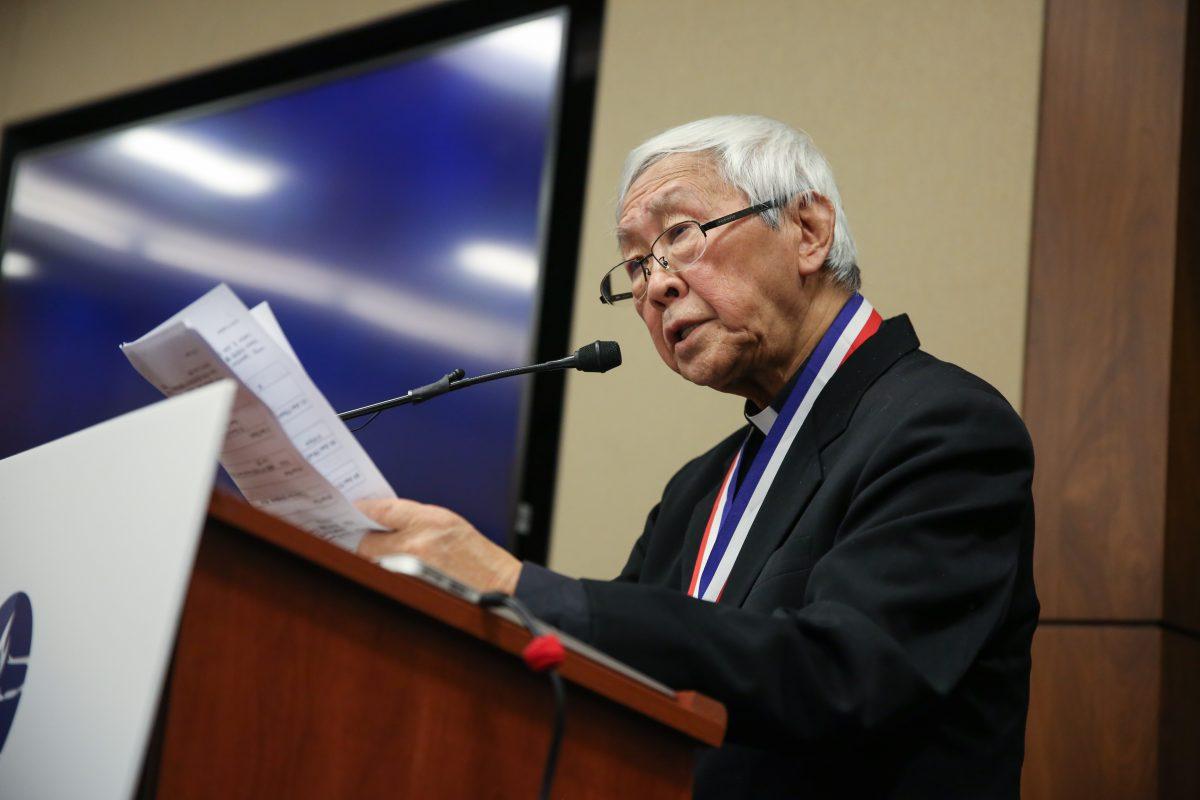
The trial of a group of top democratic politicians and campaigners known collectively as the Hong Kong 47 is scheduled to begin later this year.
The former chief of the Hong Kong Bar Association, a UK citizen, left out of concern with the NSL, and two British judges resigned from the high court for similar reasons.
The annual commemoration for the victims of the June 4, 1989, Tiananmen massacre could not be held, with religious and human rights authorities urging people to hold quiet remembrances in the privacy of their own homes rather than risk arrest.
Symbolic affirmations that Beijing, not the people of Hong Kong, were the arbiters of the acceptable abounded. Among the most meaningful was the removal of the Pillar of Shame sculpture from the campus of Hong Kong University at Christmastime 2021. When its Danish creator requested the monument’s return to the victims of the Tiananmen Square massacre, no shipping company was willing to undertake the task.
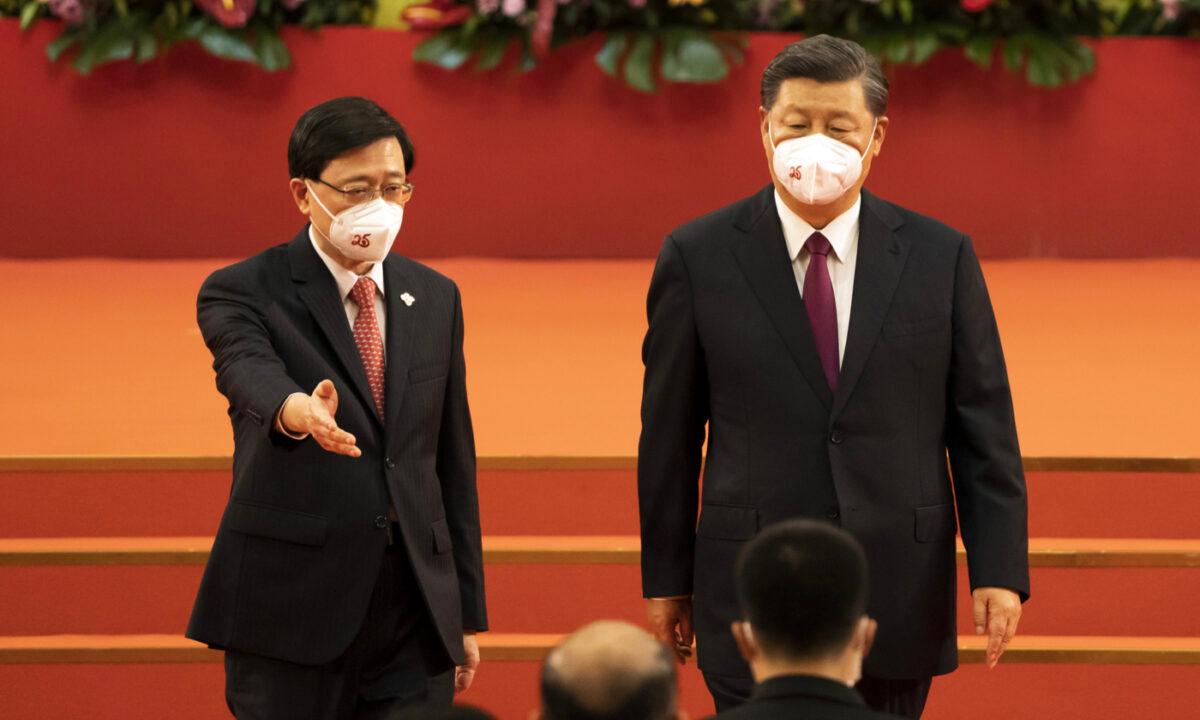
The major question is whither Hong Kong. Carrie Lam’s and Chan Chak-ming’s views notwithstanding, there is general agreement that Hong Kong’s once-vibrant civil society is dead. In the words of a long-time resident, Hong Kong is being treated like a naughty pupil being made to stand in a corner as long as the teacher pleases.
People are leaving if they can. Although the numbers are not enormous, she adds, those who emigrate tend to be from the professional and intellectual strata, with those remaining either apolitical or unable to move for personal or business reasons. In a best-case scenario for the government, mainland professionals, who have never had the rights that Hong Kong people enjoyed and therefore will not protest their absence, will fill the places left by those who have emigrated.
How much this will affect Hong Kong’s ability to further integrate itself with the mainland while simultaneously maintaining its status as a leading financial center remains to be seen. Hong Kong has consistently declared itself open for business, but how many investors will come is a major unknown.
Should the Chinese financial bubble burst, as has been predicted for some years, the contraction will have severe consequences for Hong Kong.
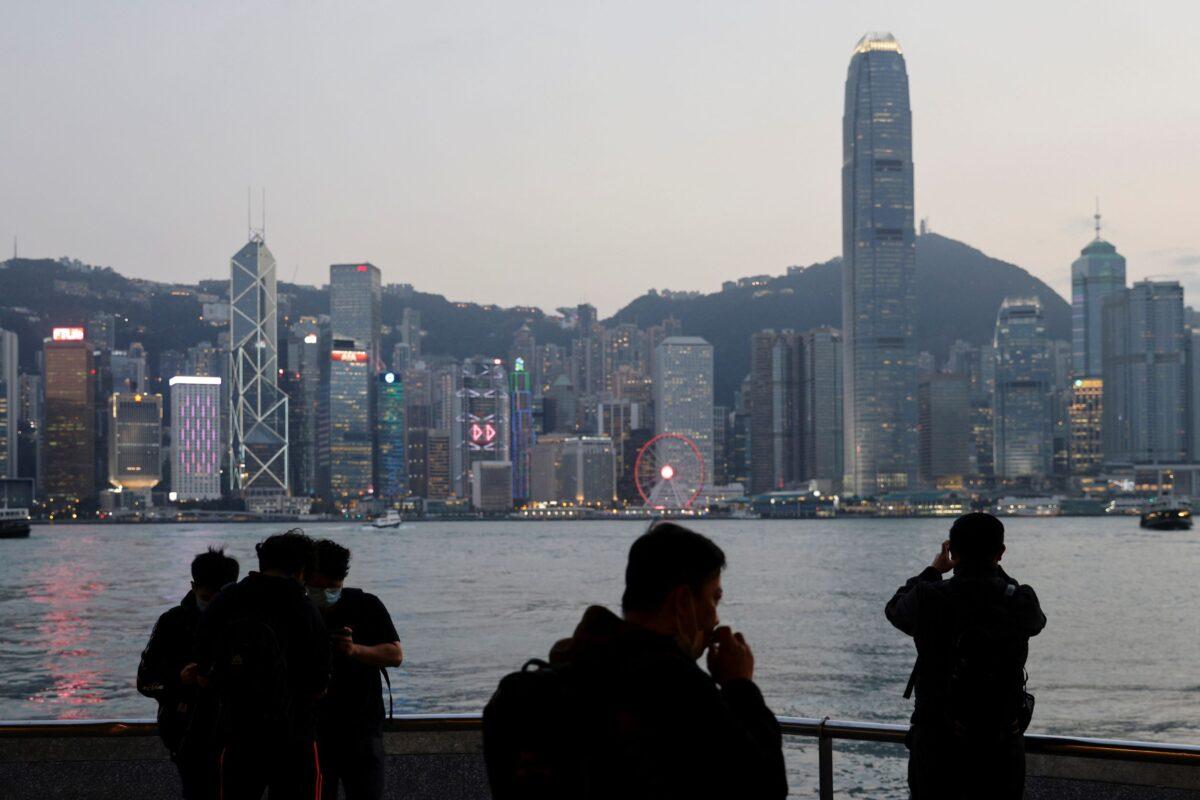
And the Asia chair of the prestigious American law firm Davis Polk and Wardell pronounced himself “honored” to speak at a Hong Kong government forum commemorating the passage of the NSL, having publicly endorsed it a year before by saying that “at the heart of everything Hong Kong government’s success is the rule of law.”
It is difficult to believe that an official of an internationally renowned law firm regarded the NSL as the rule of law. The official was later shamed into withdrawing, saying, again incredibly, that his “agreement to participate did not reflect an endorsement or support of any topics discussed or individuals or organizations involved.”
The latter is likely to triumph in a conflict between ethics and profit. However, there will be a cost: Homogenization with the mainland while somehow insisting that Hong Kong can remain unique is logically impossible. Blessed with scenic beauty, an ideal geographic location, and state-of-the-art infrastructure, Hong Kong will continue to be a center for international commerce, albeit perhaps at a lower level than before. But as an expat who has decided to stay lamented, its human core is rotting.
